Coconut Oil For Tattoo Aftercare: A Complete Guide
Use the right way and watch this wonder oil work its magic on your new ink.

Image: Shutterstock
Hear hear tattoo enthusiasts or anyone who is delighted to have gotten a new tattoo! We bring you a natural tattoo aftercare product for your newly tattooed skin. Of the many creams and tips for tattoo aftercare out there, it is recommended to use coconut oil on the tattoo to keep the area moisturized and help your newly inked skin heal. The use of coconut oil has long been an ancient skincare practice in many cultures, but its use on tattoos is relatively new, which naturally makes tattoo enthusiasts hesitant to try it on their freshly inked skin.

Coconut oil is an effective protector of the skin that, upon direct application, works by forming a layer over it to help with the retention of skin moisture. However, the question remains – is coconut oil good for tattoos? Can its topical application really help in the wound healing process? In this article, we answer these questions, and more, and also help you use virgin coconut oil the right way. Let’s dig in!
In This Article
Is Coconut Oil Good For New Tattoos?
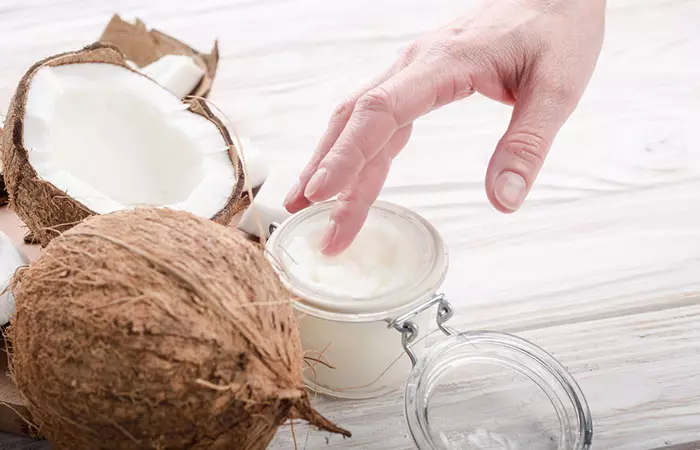
Simply put, you can definitely apply coconut oil on a new tattoo. The presence of high levels of fatty acids in this oil not only strengthens the moisture barrier of the skin to provide protection but also has anti-inflammatory effects (1). When we get a new tattoo, the broken skin is mildly sore and inflamed. Hence, natural ingredients with soothing effects, such as coconut oil, can help in calming the skin and keep it hydrated, thereby promoting a healthy healing process.
Coconut oil contains lauric acid which acts as a natural antiseptic inhibiting bacterial growth that helps prevent microbial infections while your sensitive skin heals (2). Additionally, coconut oil contains antioxidants and vitamin E that promote wound healing (3). Safe to say, you can use virgin coconut oil on your tattoo and reap its multiple benefits. But when can you start using it on your tattoo? Check the next section to know more.
Key Takeaways
- A thin layer of coconut oil can be used as a natural tattoo aftercare product for moisturizing the tattooed skin and aid healing and overall retention of skin moisture.
- It also has anti-inflammatory and antimicrobial properties that help wound healing to promote healthy skin.
- It is important to not use refined coconut oil on sensitive skin, such as the area after a fresh tattoo.
- It is important to perform a patch test to confirm you are not allergic to coconut oil before applying it to the tattoo.
When Can You Put Coconut Oil On A Tattoo?
After getting your tattoo, the most important steps are cleaning and moisturization and maintaining proper skin care, as suggested by your tattoo artist. Although the capacity of coconut oil in wound healing is high, and it is great for your skin, it is generally recommended to wait 3 to 4 days or at least or up to 24 hours after the tattoo process to apply it. During this period, the tattoo is technically an open wound. There may be blood, plasma, or even ink oozing out, and you need to gently clean the tattoo with soap, preferably a mild one. After a few days, when there are no secretions, it is safe to apply coconut oil to aid the healing process of the clean tattoo.
As you may have guessed by now, coconut oil is no less than a magic potion for your tattoos and skin in general. Scroll down to learn more about how and in what ways it can help your tattoos.
What Are The Benefits Of Using Coconut Oil On Tattoos?
The positive effects of coconut oil in wound healing, healing skin burns, on dry skin, and for various other skin conditions is well recognized. Hence, applying it on your skin for tattoo aftercare is a natural thought. So, here are a few reasons why you should go for a coconut oil tattoo aftercare:
1. It Is Antimicrobial
One of the major risks during tattoo aftercare is an infection due to some adverse reactions, which is the last thing anybody wants. Thankfully, coconut oil is a natural alternative for antibiotic creams, as it has antibacterial properties that help fight bacterial growth (2). In fact, its topical treatment may also work against viral and fungal infections (4).
2. It Is Anti-Inflammatory
Getting a new tattoo may lead to some degree of soreness and skin inflammation in the concerned area. However, the excellent anti-inflammatory properties of coconut oil can help soothe inflamed skin (1).
3. It Is An Angiogenic
What contributes to coconut oil’s wound healing property is its angiogenic character (5). Angiogenesis is the production of new blood vessels in the body, through the vascular system. These new vessels flood the scabbing area with fresh blood that helps in collagen formation and scarring, thereby promoting wound healing (6).
4. It Is Moisturizing

Coconut oil is rich in fatty acid components and vitamin E, both of which are effective in moisturizing the skin and upholding the skin’s natural moisture barrier. Additionally, vitamin E also helps soften the skin, making it plump. This also makes this natural alternative for people with dry skin, as it retains the skin’s natural moisture content for longer periods, keeping it nourished and glowing, and it keeps the tattoo aesthetically pleasing. Plus, as coconut oil aids in boosting moisture, in return your tattoo will appear more vibrant and maintain its clarity over time.
Hannah Reeves, a blogger and tattoo enthusiast, shares her experience of using coconut oil for healing her fresh tattoo in her personal blog. She used it following her tattoo artist’s recommendation for proper skincare. She says, “My tattoo is now 4 days old, and it’s doing great. The coconut oil is keeping it moisturized and it seems to be healing super-fast (i).”
5. It Is Safe
Virgin coconut oil is an all-natural product that does not contain any artificial fragrances or chemicals. This makes it safe to apply and a good choice for all skin types, including sensitive skin. If you are not allergic to coconut oil itself, it generally does not cause any negative reactions and keeps the skin healthy.
6. It Is Accessible
One of the reasons this oil has become such a universally loved beauty product is not just because it keeps the skin healthy, but also its accessibility. Fortunately, coconuts are abundantly available in nature, and can grow in most parts of the world, making the oil easily available everywhere.
7. It Is Versatile

The versatility of coconut oil is another significant benefit of this product. After the intended use, your container of coconut oil does not need to just sit on the countertop. It has many health benefits and can be used for various other purposes, such as for makeup removal or as a carrier oil to combine with essential oils. Its application can also improve hair health (7). In fact, a dab of the oil mixed with perfume may also increase the longevity of the scent!
 Pro Tip
Pro TipHow To Use Coconut Oil On A Tattoo
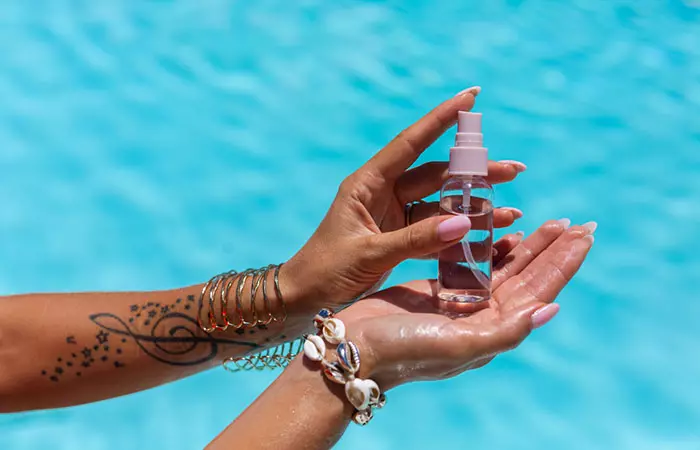
Three to four days post your tattoo session, when your tattoo wound is scabbing and the natural blood clotting process is over, it is safe to apply coconut oil as aftercare. The application process is fairly simple. Here are a few steps to follow to include it in your aftercare routine:
- Wash and disinfect your hands thoroughly.
- Gently wipe the tattoo area with soap and water to clean it.
- Depending on the size of your tattoo, take the appropriate amount of virgin coconut oil in your hands.
- Apply a thin layer of the oil onto the tattooed skin as a topical treatment.
 Quick Tip
Quick TipHowever, a word of caution. If you are using coconut oil for the first time, it is important that you perform a patch test before actually applying it for tattoo care. Here’s how to perform a patch test:
- Dab a small portion of virgin coconut oil on your forearm or the back of your ear.
- Cover the area with a bandaid and let it sit overnight or one full day.
- Take off the bandaid the next day and check for any redness or irritation.
If you experience any skin conditions such as itching, burning, or any kind of irritation or adverse reactions, stop using the product immediately. If not, you are safe to follow the application process 2-3 times a day, or as required.
Coconut Oil For Tattoos: Risk Factors And Precautions
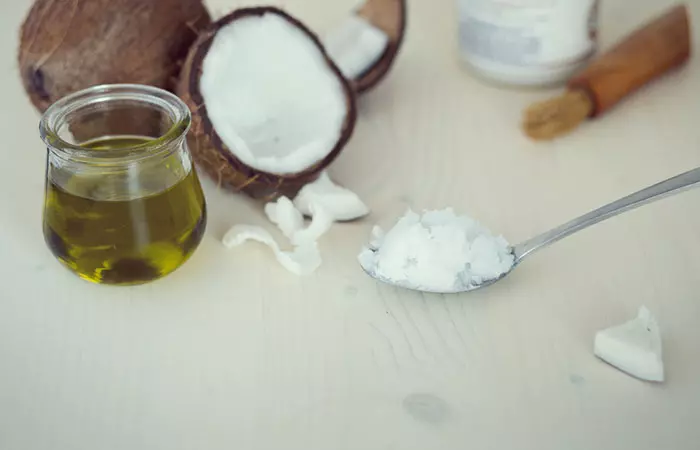
Although this oil is a fairly safe ingredient, and there are not many adverse effects, a study showed some instances of allergic reactions in people (8). Here are a few possible risks involved with its use:
- It may cause hypopigmentation or topical lightening of the skin.
- The lauric acid present in coconut oil may mix into the breast milk, potentially causing allergies in infants.
- Excessive or overapplication of coconut oil may lead to clogged pores which can lead to breakouts, especially for acne-prone skin.
Some precautionary measures that may help reduce the risk factors are:
- Always use pure, virgin coconut oil.
- Always wash or disinfect your hands before applying to reduce the risk of infection.
- Apply a thin layer of coconut oil to avoid clogging pores and wipe away the excess.
The Bottom Line
Coconut oil has been in use for centuries as part of proper skincare practices and natural moisturizer across cultures; however, its application for tattoo aftercare may be new. Nevertheless, if you have recently gotten a tattoo or gotten one removed, coconut oil can be your best friend. Its anti-inflammatory and antibacterial properties can help in faster wound healing and maintain the aesthetic appeal of the tattoo by promoting healthy glowing skin. Moreover, it is easily accessible and user-friendly, which also makes it one of the most popular ingredients for skincare and skincare products all around the world. Although coconut oil is generally considered safe for the skin, it may cause some allergic reactions in rare cases. Hence, always consult your tattoo artist or dermatologist before using anything on your tattoo, and consider doing a patch test before using it for the first time.
Frequently Asked Questions
What things should I avoid when applying coconut oil to my tattoo?
Avoid using unrefined coconut oil on a fresh tattoo, as it may cause irritation. Ensure your hands are clean before application and avoid overusing, as excess oil may clog pores and delay healing.
How frequently should I apply coconut oil to my tattoo?
Applying coconut oil once or twice daily or as advised by your tattoo artist can help keep the area moisturized and promote healing.
Is coconut oil good for a peeling tattoo?
Yes, coconut oil has excellent moisturizing properties due to its fatty acid content, and it helps hydrate dry and sensitive skin, making it effective for peeling tattoos.
What is the best alternative to coconut oil for tattoos?
Although coconut oil is commonly used in the tattoo healing process, you may also use cocoa butter for tattoo aftercare. Some other best alternatives to it are jojoba oil, grapeseed oil, olive oil, and sweet almond oil.
Does coconut oil fade tattoos?
There is no evidence that coconut oil fades tattoos. In fact, virgin coconut oil may help maintain the shine and appeal of the tattoo.
Does coconut oil work for infected tattoos?
Infected tattoos need medical attention and it is advised not to put coconut oil or anything on them without proper consultation with a medical practitioner about your skin condition.
Which one is good for a tattoo, aquaphor or coconut oil?
Both aquaphor and coconut oil have tattoo care benefits. While aquaphor moisturizes and protects the fresh tattoo against infection or irritation, the fat content, anti-inflammatory and antibacterial properties of coconut oil can help in wound healing along with boosting skin moisture content.
Illustration: Coconut Oil For Tattoo Aftercare: A Complete Guide
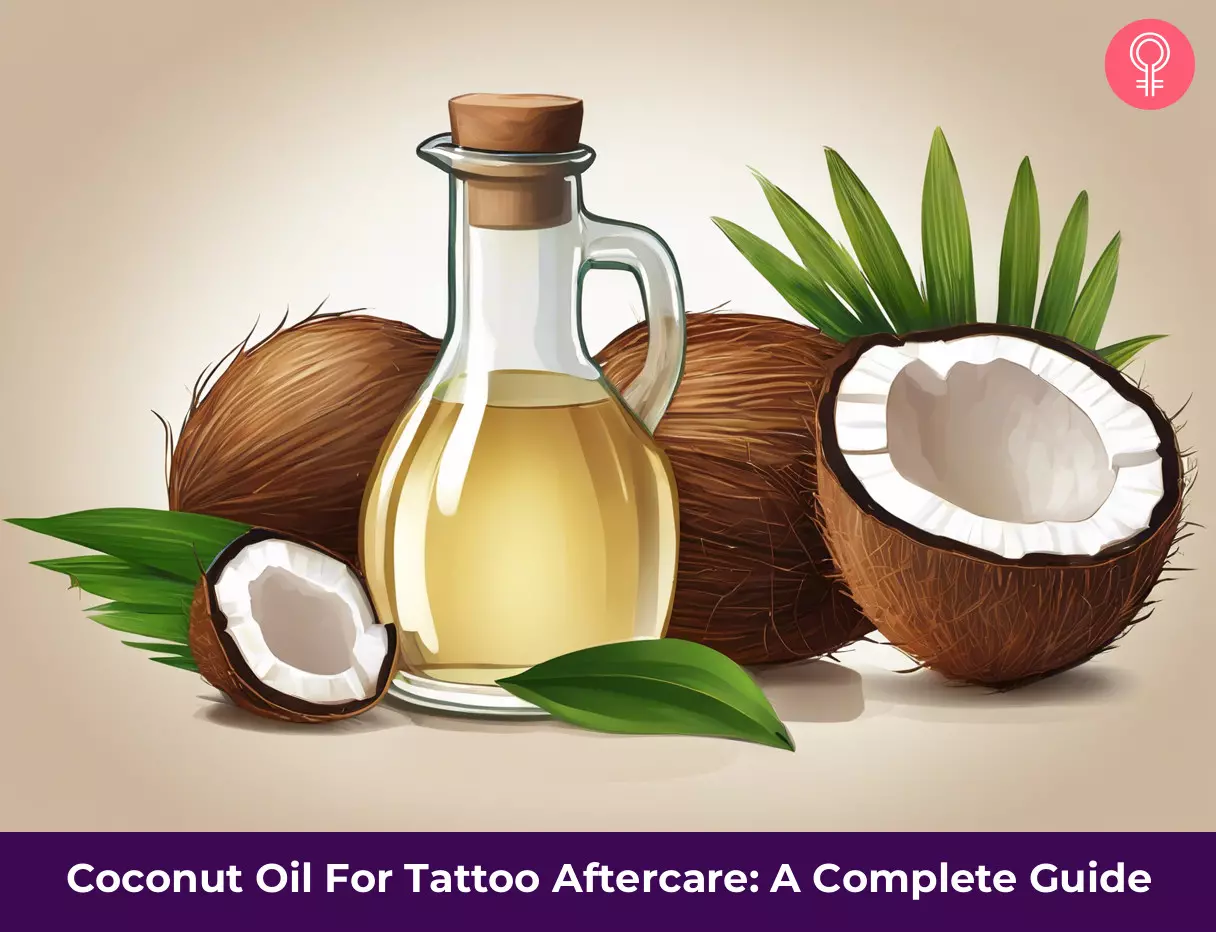
Image: Stable Diffusion/StyleCraze Design Team
Get some tattoo aftercare tips for your freshly inked skin from this video below. Click to know how to use coconut oil to moisturize your skin and get your tattoo healed!
Personal Experience: Source
StyleCraze's articles are interwoven with authentic personal narratives that provide depth and resonance to our content. Below are the sources of the personal accounts referenced in this article.
i. The Magic of Coconut Oilhttps://thestudentvegetarian.wordpress.com/2017/06/07/the-magic-of-coconut-oil/comment-page-1/
References
Articles on StyleCraze are backed by verified information from peer-reviewed and academic research papers, reputed organizations, research institutions, and medical associations to ensure accuracy and relevance. Read our editorial policy to learn more.
- In vitro anti-inflammatory and skin protective properties of virgin coconut oil
https://www.ncbi.nlm.nih.gov/pmc/articles/PMC6335493/ - Antimicrobial activity of coconut oil and its derivative (lauric acid) on some selected clinical isolates
https://www.researchgate.net/publication/319421441_Antimicrobial_Activity_of_Coconut_Oil_and_its_Derivative_Lauric_Acid_on_Some_Selected_Clinical_Isolates - A narrative review on use of virgin coconut oil in dermatology
https://www.researchgate.net/publication/361588971_A_narrative_review_on_use_of_virgin_coconut_oil_in_dermatology - Comparative evaluation of antifungal activity of cocos nucifera oil against candida albicans
https://www.researchgate.net/publication/268745882_COMPARATIVE_EVALUATION_OF_ANTIFUNGAL_ACTIVITY_OF_COCOS_NUCIFERA_OIL_AGAINST_CANDIDA_ALBICANS - Angiogenic and wound healing potency of fermented virgin coconut oil: in vitro and in vivo studies
https://www.ncbi.nlm.nih.gov/pmc/articles/PMC5714777/ - Angiogenesis in wound healing
https://pubmed.ncbi.nlm.nih.gov/11147674/ - Longitudinal study of the scalp microbiome suggests coconut oil to enrich healthy scalp commensals
https://www.ncbi.nlm.nih.gov/pmc/articles/PMC8012655/ - Treatment of dermal infections with topical coconut oil
https://www.naturalmedicinejournal.com/journal/treatment-dermal-infections-topical-coconut-oil
Read full bio of Bianca Lorena Saldes
Read full bio of Gazala Firdos Ansari
Read full bio of Madhumati Chowdhury
Read full bio of Shreya Mukherjee







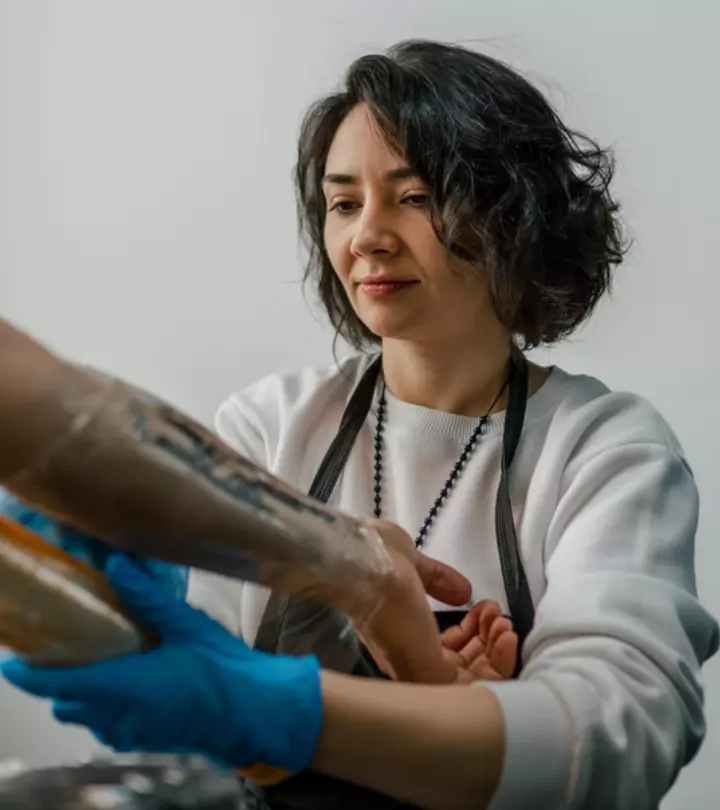





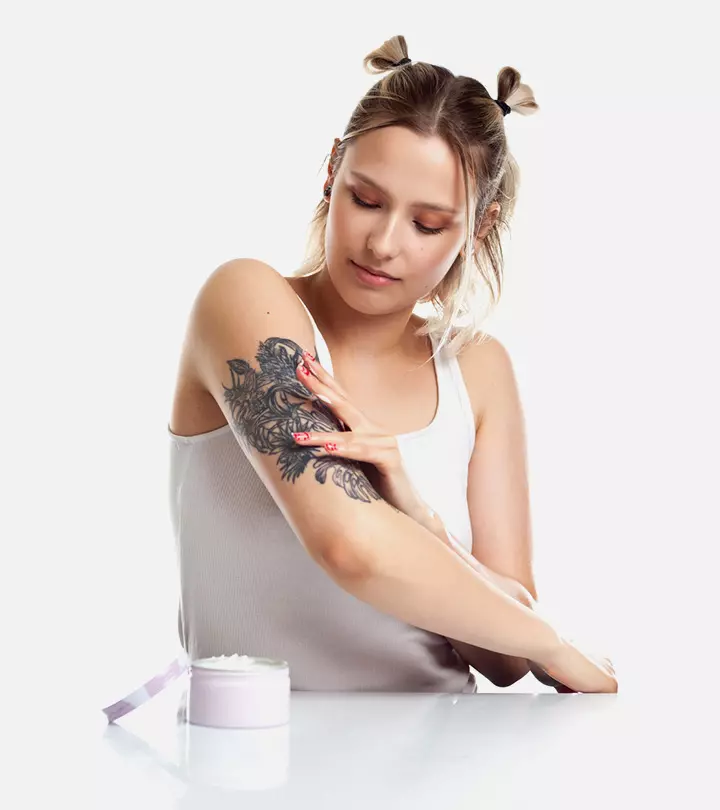



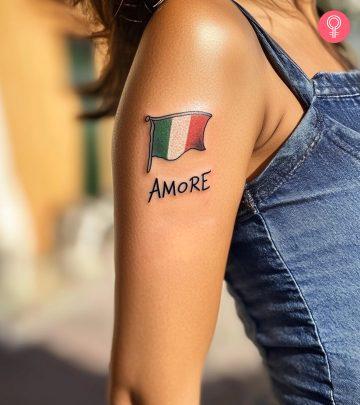









Community Experiences
Join the conversation and become a part of our empowering community! Share your stories, experiences, and insights to connect with other beauty, lifestyle, and health enthusiasts.